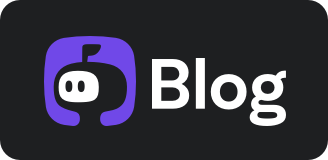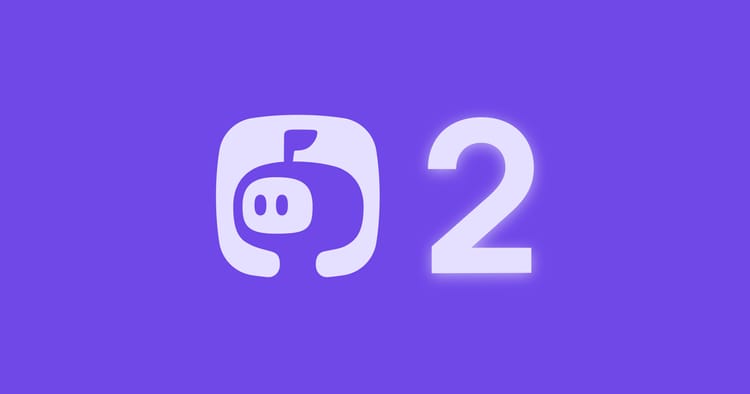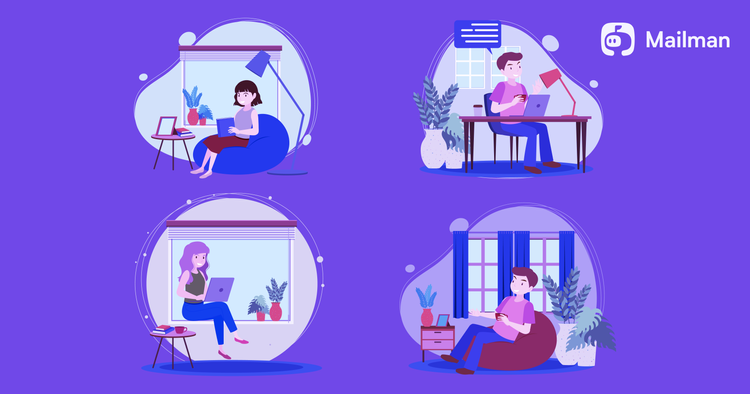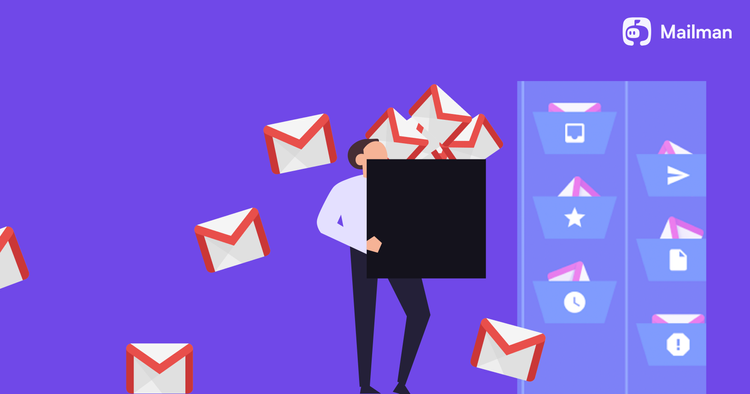Productivity by leveraging automations
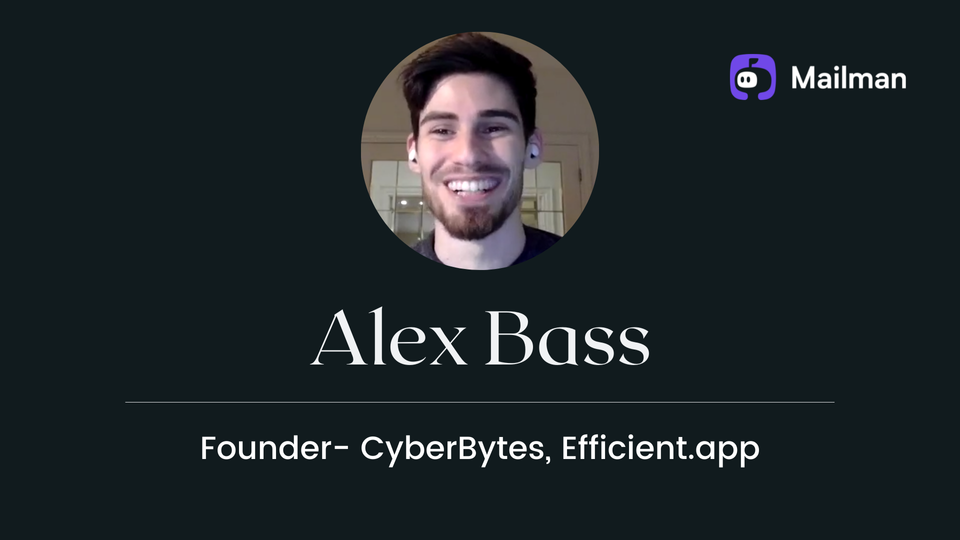
Technology is incredibly powerful. It can do the work that previously only humans could. Whether we talk about working in large factories, making invoices, or keeping track of work. Technology can do it all, without getting stressed or breaking a sweat.
That makes us wonder, can technology be used to reduce our work, build better processes and help us be more productive?
Of course, it can! But how?
By leveraging automations.
Alex Bass shares how he uses different automations to make his life (& work) a lot easier and have more time on his hands. For example, he has an automation in place to take all support requests and put them directly into his Asana dashboard based on their priority level, so he doesn’t have to track support tickets manually. That would be such a frustration and time sink, just trying to organize the support tickets.
This is just one of the many automations Alex has in place to do less of the menial work and give more time to doing focused work. Technology is a tool, which, if used correctly, can do a lot of your work so we can focus on what’s actually important.
In our conversation, Alex shares his story of how he started his first business with his stepdad as his partner, how he keeps himself productive by using automations, setting internal & external boundaries, getting clients to respect those boundaries, and much more.
Let’s dive in!

Alex introduces himself

Hi I’m Alex, founder of CyberBytes and Efficient.app. I started my company about 10 years ago. At that point, I was doing web development and online marketing but then I pivoted into IT support. I observed that one of the big pain points was that companies were either not using software or not using it properly.
At that time my step-father was facing problems following up with people for his business. So I learnt about the CRM space and document signature space. Then I thought what if I start selling this to companies and helping them implement it.
When I did that I saw that I was solving a real problem for small and medium-sized businesses while earlier when I was doing web-development, a lot of people could do web development to some degree. For that reason, I’ve been working more on the CRM and integrations side of things for the past 6 years or so.
CyberBytes is more of a custom integrations company. If you’re using Copper CRM, GSuite and Quickbooks, CyberBytes can connect Quickbooks Online with Copper CRM. Connecting the APIs together and really solving the pain points from a technical custom perspective.
Efficient App is a processed approach to implementing CRM and automation. So when someone asks for some tweaks to automation, we let CyberBytes take care of it as it’s focused on building custom solutions. Efficient App is more scalable, but we can charge more for CyberBytes as we’re designing custom solutions for the specific needs of customers.
Partnering with stepfather for his 1st company
My 1st job was in my stepfather’s business. I was doing general admin work. He needed some help with web development. This was before the days of Squarespace, or days when you could easily spin up a website. So I said okay I’ll figure it out. I was using Adobe Dreamweaver trying to figure out how to build a website.
I didn’t know the design or even color scheme but I built a website and showed it to my stepfather. His reaction was, this looks like shit! (in a jokey way) I got super offended at that because I worked so hard at it. But after that, as I learned more and more, I got better and started to love web development. I got really into it, I kept learning web development all the time even though I was doing college at the time.
Then my stepfather said, hey why don’t we offer this web development service to other people. I said yes that’s a good idea. We then started a new company in which my stepdad and I were 50-50 partners. We did that for about 4 years. It took all of my time. While my stepfather worked on his construction company all the time. He was supposed to be the salesman for this and I was supposed to be the technical person. But he wasn’t doing any of that. It didn’t make sense for us to be 50-50 partners.
So I went to my stepfather and offered if I could buy him out or let him keep the business and I start a new company. It was tough, really tough. We didn’t talk for months. I was a man of very few words as I was so frustrated that I’m doing all the work while he owns 50% of the business. But after some time he came to me and said, “our relationship is healed and you can take the business and run it”. He’s now one of my long-lasting clients and even one of my 1st clients. I still serve him, his business has grown a ton and I’m super happy how everything has gone.
Typical workday
Earlier, at the time we were pivoting from web development to IT support, I was being pulled by things. I would wake up to support tickets and go okay now I need to take care of this. Phone calls would come in early in the morning. For all these early morning things that would come up, I used to have anxiety waking up.
Now, I’ve decided to get as far away from that as possible and set boundaries. At this point, I don’t have any calls or any work that I’ve to do before 1PM. All that time in the morning is my time. That’s because in the morning I want to work on the things that I want to work on and not get pulled by things. Or just take the day slow. Taking a cup of coffee, going through emails and doing that kind of stuff. Of course if something urgent comes in, it’ll take my attention. But on most days I’m able to get myself and other people to respect the boundaries I’ve set.
Another rule I have is that I only take calls on Tuesdays and Thursdays. Other days are reserved for focused work.
Besides, I’ve been able to get to a point where I work when I feel like working. I feel I’m more efficient and productive when I’m in the mood to work. I don’t believe in having strict rules like, “I’ll work from Monday to Friday 9 to 5”. What if on Wednesday morning you don’t feel like working, in such a scenario it’s better to take the day off instead of pushing yourself to work. That work can be done later and in lesser time when you actually feel like working on it.
Often 3 focused work hours are much better than 8 hours of work where you’re not focused and your attention is going in all directions.
Productivity by leveraging automations.
I use Zapier to automate processes. It’s basically using computers to do tasks. By doing that I’ve been able to free up a lot of my time. I’ve built automations for all delegable tasks. For example, reconciling my books using software that can help me automatically reconcile my books. So whenever a virtual card is charged for something, the software automatically puts it under that category in Quickbooks. I’ve hired a CPA that just looks over it at the end.
Similarly, I’ve another automation that automatically puts all support tickets into my Asana dashboard, so I don’t need to manually track all the support tickets. It’ll be very frustrating if I had to do that.
Using these automations in my professional life gives me clarity in my personal life. Plus, giving me more free time which I would have otherwise spent working or thinking about work. Automations definitely have been very helpful for me.
Setting external boundaries.
I’ve talked about how I use boundaries like not working or taking calls before 1PM. Similarly, I have external boundaries with clients, so that they do not call at odd hours or not follow the processes I’ve built.
For example, when a client emails me on my personal email, I give them a slower response time and then reply with, “hey sorry I just saw your mail, I don’t check this email often. Next time try writing to the support email, you’ll get a faster response there”.
No-one wants slower response times, so that makes them follow the right process. I also ensure that I set the right expectations with clients so that there’s no sense of urgency later.
While setting these external boundaries, it’s important to educate others of the processes and how it can cost them if they don’t follow them. Like slower responses can hurt the business in both time and money terms.
There’s no need to be aggressive in trying to get your external boundaries respected, it’s just a matter of effectively communicating the processes and how it’s in favor of everyone to follow them.
Being unproductive to get productive.
Earlier when I felt unproductive, I pushed myself to get productive. With time, I’ve realized that being unproductive can lead to productivity. By “being unproductive” I mean doing things that are generally not considered productive like going for a walk or watching a TV show.
I’ve found that doing these “unproductive” things helps me refuel and get productive again. For example, watching business-related shows like “The Undercover Billionaire” or “The Profit” really motivates me to work. In that way doing unproductive things helps me get productive much better than forcing myself into it.
Dealing with burnout.
I feel burnout is what happens when you don't have boundaries set for yourself. If you're doing focused work, you have to give yourself time to rest and recharge. So the other day I was approaching burnout as I had meetings all day then in the evening, I went to my friend’s house to do some cleaning as he’s selling the house. We were up till 2AM that night.
When I look at that instance now, I see that an unexpected thing came up, that took more time than expected and hence my boundaries were not respected. We should try to minimize these unexpected things that disrupt our boundaries or keep them within boundaries as much as possible. If we respect our boundaries all the time, burnout will not be a problem.
Don't start a business for the money.
Whenever someone comes to me and asks for advice on starting up, I always advise them to not do a startup. This is because I’ve been through it and I know what you’ve to go through to get a good place with a business. I was making only $10k/year for the first 4 years of starting a business. I won’t wish that on anyone.
Business is great for learning and growth. If that’s your main goal then go ahead and start a business. There’s nothing that will help you grow as a person than starting a business. But if your goal is to make money, then starting a business is not your best bet. I’d advise to not do it for the money.
A friend of mine gave a quote to me and I really resonate with that. It went, "You've to earn the right to play the long game". This means you've to do the short-term things long enough to earn the right to play the long-term game. You’ll need to chew on that to understand what that means. Starting a business is a long-term game.
Introverts like deep connections.
Being an introvert, I used to think I hate people in general, but that's not the case. I just didn't like shallow conversations. I loved connecting with people on a deeper level where we shared our struggles and learned something from each other.
Small talks don’t excite introverts and so they stay shut most of the time. Enriching deep conversations is something every introvert craves.
Being intentional about meetings.
I don’t set meetings too far in advance. Instead, I fix meetings based on how I’m feeling at the moment. There’s no point going into a meeting all tired up and in bad mood.
I’m able to contribute much better to a meeting if I’m in a good headspace. Future Alex hates it when prior Alex books these meetings far in advance.
One hour extra.
I think I have a good sense of time and I don't end my days feeling I wish I had another hour. But if I had one, I'd probably spend it with family and friends or maybe listening to a podcast.
Podcast is my means of going deep with people. I feel that if we talk long enough, the chances are high you will be going deep into something you're passionate about.
Podcasts also help stay updated on what's going on. I become a more learned person and I stay on top of things. So I'll most probably use that extra hour listening to podcasts.
How to contact Alex?
If you genuinely want to, you can send me an email at abass@efficient.app. You can also follow me on Twitter at @AlexhBass.
